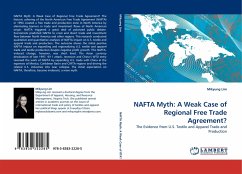The North American Free Trade Agreement (NAFTA),
first implemented on
January 1, 1994, is a comprehensive trade agreement
that will ultimately result in the
elimination of nearly all trade tariffs among the
United States (U.S.), Canada and Mexico
by the year 2008.
This paper will address NAFTA s effects on IT use in
Mexico. Mexico is a
relevant case for examining these changes because it
can give further insight into trade
liberalization influences on IT adoption and growth.
As the world continues to become
more interconnected, and IT plays a larger role in
both developed and developing
countries, the way liberalization affects IT and
interacts with other movements within aneconomic
system will become exceedingly important to
understand. IT helps increase
production efficiencies, can decrease unit cost, and
facilitates international trade.
first implemented on
January 1, 1994, is a comprehensive trade agreement
that will ultimately result in the
elimination of nearly all trade tariffs among the
United States (U.S.), Canada and Mexico
by the year 2008.
This paper will address NAFTA s effects on IT use in
Mexico. Mexico is a
relevant case for examining these changes because it
can give further insight into trade
liberalization influences on IT adoption and growth.
As the world continues to become
more interconnected, and IT plays a larger role in
both developed and developing
countries, the way liberalization affects IT and
interacts with other movements within aneconomic
system will become exceedingly important to
understand. IT helps increase
production efficiencies, can decrease unit cost, and
facilitates international trade.








